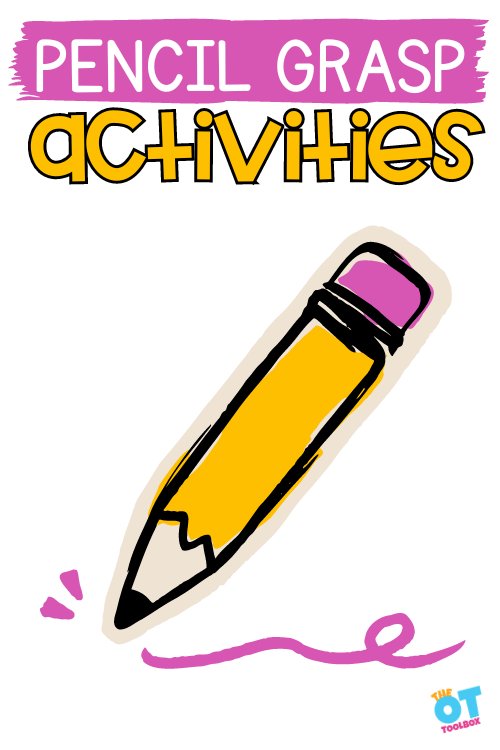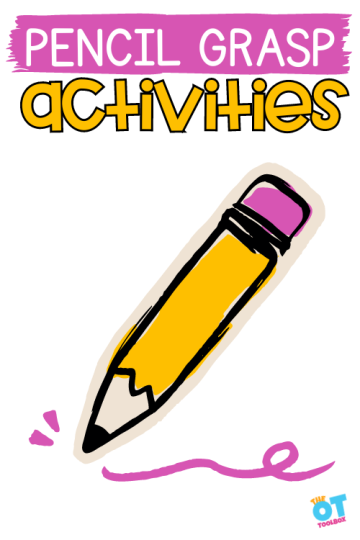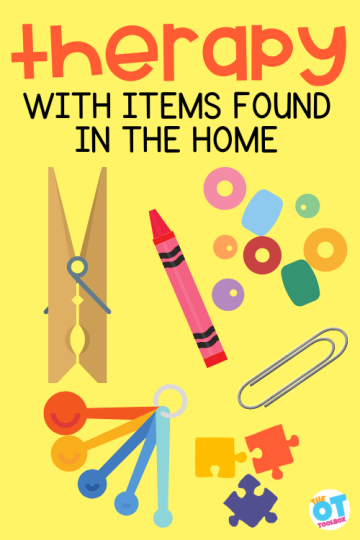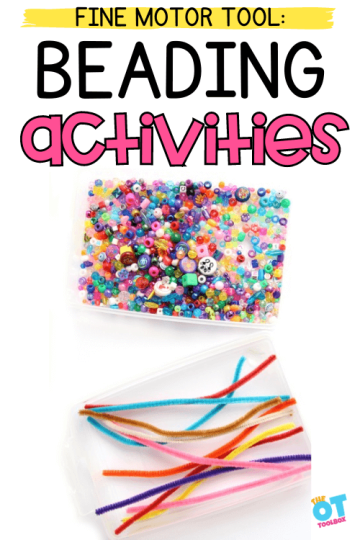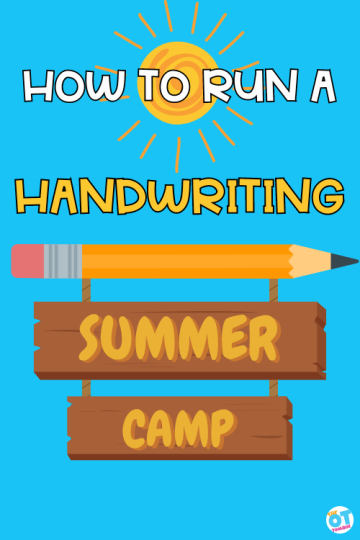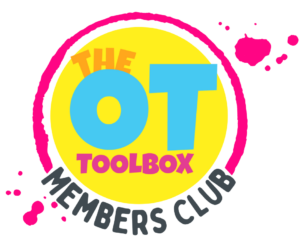For parents of preschool children that require occupational therapy services, there can be a lot of questions. Here, we’ll try to cover preschool occupational therapy services. OT for preschoolers and early intervention occupational therapy services can be a whole new world for parents of preschoolers! Play age and stage of development makes a difference in the occupational therapy provider’s use of play as a tool and an area of development. Be sure to check out our resource on fine motor activities for preschoolers, too.

Preschool Occupational Therapy
From 3-5, children are developing in so many ways. From motor skills to cognition, to language…the preschool age is a time of massive changes. Be sure to check out these preschool activities for hands-on strategies to impact learning and development during the preschool years.
For the youngest of learners, classroom concerns tend to be centered around achieving developmental milestones, learning proper social practices, and creating an environment that all children can learn and grow in.
What does OT Look Like in the Preschool?
Occupational therapists can work with teachers to improve and sustain an environment that will support the growth during this very important time in childhood.
What they learn in preschool partially determines their future success – particularly when it comes to social, emotional, and cognitive skills. In fact, studies over the years continue to show that socio-emotional intelligence in preschool and kindergarten is a great predictor of future academic success (Rhoadesa et al., 2011).
Early Intervention Occupational therapy
Typically early intervention is a service that works with children aged 3 and under. For some states in the United States, early intervention continues through age 5. For children in those states, early intervention occupational therapy can occur in preschool settings.
Early intervention occupational therapists focus on functional participation of tasks at home, in the school, and in naturally occurring environments such as daycares.
An occupational therapist working with a preschool may:
- Complete assessments of skills of ability to achieve age-appropriate levels, developmental progression, etc.
- Support parents, teachers, and the family unit of the child through a family-centered model.
- Set-up the overall environment for occupational success.
- Offer recommendations for sensory play to boost sensory integration skills.
- Offer developmentally appropriate activities.
- Create a library of books that promote the development of social and emotional skills.
- Work collaboratively with preschool teachers to support the preschooler’s needs and offer support and suggestions to meet student’s needs
- Adapt daily activities to support development.
- Create a self-calming area and visuals such as class schedule, individual schedule, or task schedules within the home or classroom, or school-wide environment.
- Encourage use of transition tools to help preschoolers move from one task to another.
- Build a fine motor “gym” where students can develop fine motor skills while they play.
- Recommend sensory deprivation materials like a tent, headphones, or sunglasses to calm an overwhelmed student.
- Or develop a program to boost core strength and trunk stability – both very important for sitting at a desk throughout the day.
- Push-into the preschool setting and incorporate activities into circle time or other centers.
- Incorporate All About Me preschool activities into therapy sessions to foster a relationship between the client and the therapy provider.
OT Assessments in Preschool
In preschools, occupational therapists may ask parents and teachers to complete a quick check list (with space to add comments). They will complete an evaluation and document observations made during the evaluation. They may complete a sensory profile either preschool or via a caregiver form. Evaluation may occur at the preschool, in the home, or in various locations within the school, home, or other natural settings such as daycare.
A play-based assessment will be completed to note the preschoolers abilities and levels using a variety of toys and items. Some common preschool OT assessments include the Peabody Developmental Motor Scales (PDMS–2), the Developmental Assessment of Young Children-2 (DAYC-2), the Miller Function and Participation Scales, and the Battelle Developmental Inventory, Second Edition (BDI-2).
Occupational therapy evaluations in preschool assess areas such as:
- Reflexes- A child’s ability to automatically react to environmental events.
- Functional Skills- A child’s ability to complete daily tasks required in the home and school as well as identify the amount of assistance the child needs.
- Positioning, balance, posture- A child’s ability to sustain control of his or her body within its center of gravity and retain equilibrium.
- Sensory Processing- Sensory processing abilities, baselines, and regulation during activities in the home, classroom, or other natural setting.
- Social Emotional Development- A child’s ability to regulate emotions impact the preschool behaviors we see in tasks and learning at age-appropriate abilities. This can include peer interaction, adult interaction, and family interaction. This resource on friendship activities for preschoolers is another great source of information and activity ideas.
- Locomotion- A child’s ability to move from one place to another. The actions measured include crawling, walking, running, hopping, and jumping forward.
- Object Manipulation- A child’s ability to hold and manipulate objects, toys, and materials of various sizes. Examples of the actions measured include catching, throwing, and kicking.
- Grasping- A child’s ability to use his or her hands.
- Visual-Motor Integration- A child’s ability to use his or her visual perceptual skills to perform complex eye-hand coordination tasks such as reaching and grasping for an object, building with blocks, and copying designs.
One thing that comes up a lot when it comes to the preschool years and development, is the question of whether preschoolers should write or even write their name. Occupational therapy providers promote developmentally appropriate activities. Watch the video for information on what happens when preschoolers are asked to write:
For more resources and tools on preschool occupational therapy and early intervention, check out this resource on OT Early Intervention.

Colleen Beck, OTR/L has been an occupational therapist since 2000, working in school-based, hand therapy, outpatient peds, EI, and SNF. Colleen created The OT Toolbox to inspire therapists, teachers, and parents with easy and fun tools to help children thrive. Read her story about going from an OT making $3/hour (after paying for kids’ childcare) to a full-time OT resource creator for millions of readers. Want to collaborate? Send an email to contact@theottoolbox.com.

